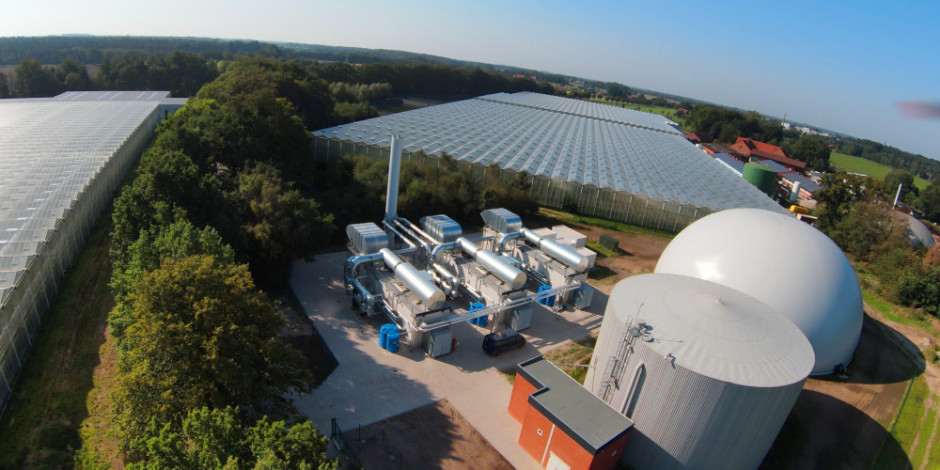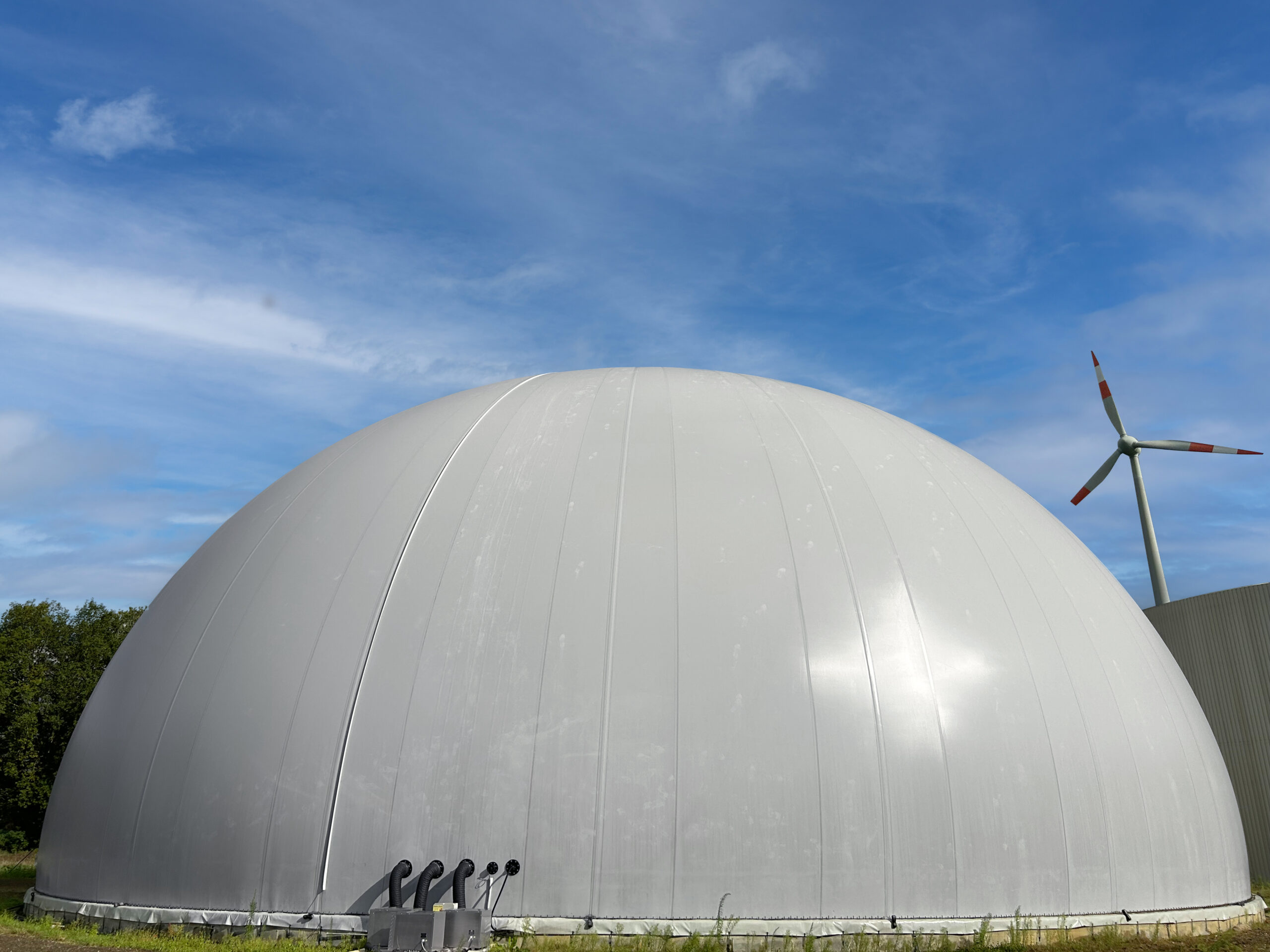
Vegetables and fruit have been grown according to organic farming regulations at the Querdel organic farm in Sassenberg, Nordrhine-Westphalia, since 2005. The farm also is a member of Germany’s Bioland association, which promotes organic farming and the transformation of the food and agriculture industry. As a result, both food production and the farm’s energy supply are subject to strict quality standards. For example, the Bioland label stipulates that 100% of the thermal energy used to grow tomatoes, cucumbers, and peppers must come from renewable sources.
It’s plain to see that our energy systems need fundamental and rapid reform. The new Jenbacher CHP unit at the Querdel organic farm is a prime example of the vital contribution that regenerative storage power plants can make here.
Joachim Pott, sales manager for the Jenbacher brand
Before the farm’s greenhouse area was doubled in size in 2022, its thermal energy needs were met by the farm’s own biogas plant and a wood chip heating system. After the major expansion, additional heat supply became necessary. Seeking an efficient solution, the farmers opted for the regenerative storage power plant concept with proven Jenbacher technology from the INNIO Group, installing three Jenbacher J620s with a total power output of 10.06 MW, a total thermal output of 10.63 MW, and high overall efficiency of 93.6%. The units are powered by biomethane supplied via the natural gas grid, which is possible because biomethane has the same chemical properties as natural gas. As a purified form of biogas, biomethane offers the key advantage of being a renewable energy source.
3 x J620
installed
10.06 MW
Power output
10.63 MW
Thermal output
Highly flexible storage power plant
Our Jenbacher unit fits perfectly with our ethos. Not only do we use it to produce green electricity and heat for our operations, we also feed electricity into the public grid at peak hours. This generates a significant stream of revenue for us and allows us to make an important contribution to the energy transition.
Bernd Querdel, managing director of Querdel Biohof GmbH
93.6%
Total efficiency
4,000 m3
Heat storage tank
11,600 m3
Biomethane storage tank
